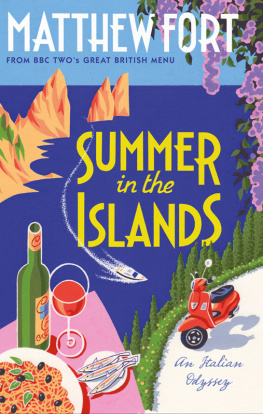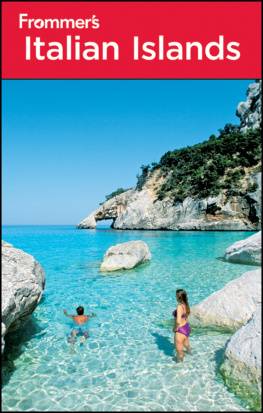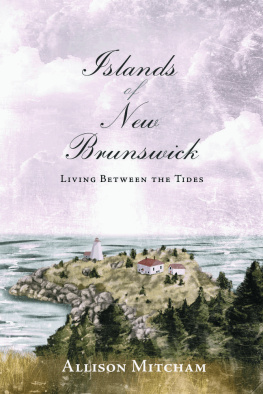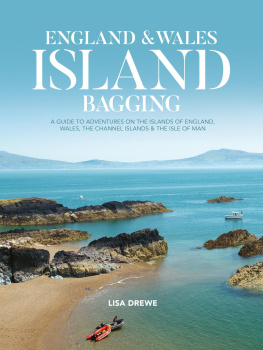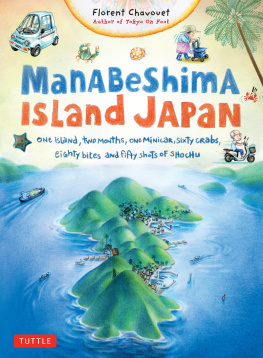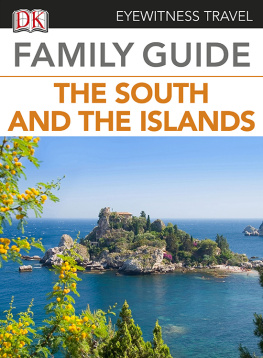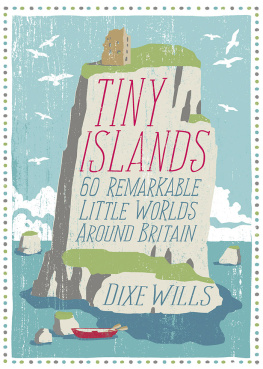
Matthew Forts food writing career began in 1986 with a column in the Financial Times Saturday Review . Between 1989 and 2006 he was Food & Drink Editor of the Guardian .
He was Glenfiddich Food Writer of the Year and Restaurateurs Writer of the Year in 1991, Glenfiddich Restaurant Writer of the Year in 1992 and Glenfiddich Cookery Writer of the Year in 2005. In 1998 he published Rhubarb & Black Pudding , a book about the Michelin-starred chef, Paul Heathcote. His second book, Eating Up Italy , was the Guild of Food Writers Book of the Year in 2005. Sweet Honey, Bitter Lemons , a food portrait of Sicily, won the Premio Sicilia Madre Mediterranea in 2009.
On television he co-presented Market Kitchen with Tom Parker Bowles and he is currently a judge on The Great British Menu . He lives in Gloucestershire.
BY THE SAME AUTHOR
Rhubarb & Black Pudding
Eating Up Italy
Sweet Honey, Bitter Lemons
For Lois
my beloved daughter
Dear Reader,
The book you are holding came about in a rather different way to most others. It was funded directly by readers through a new website: Unbound. Unbound is the creation of three writers. We started the company because we believed there had to be a better deal for both writers and readers. On the Unbound website, authors share the ideas for the books they want to write directly with readers. If enough of you support the book by pledging for it in advance, we produce a beautifully bound special subscribers edition and distribute a regular edition and e-book wherever books are sold, in shops and online.
This new way of publishing is actually a very old idea (Samuel Johnson funded his dictionary this way). Were just using the internet to build each writer a network of patrons. Here, at the back of this book, youll find the names of all the people who made it happen.
Publishing in this way means readers are no longer just passive consumers of the books they buy, and authors are free to write the books they really want. They get a much fairer return too half the profits their books generate, rather than a tiny percentage of the cover price.
If youre not yet a subscriber, we hope that youll want to join our publishing revolution and have your name listed in one of our books in the future. To get you started, here is a 5 discount on your first pledge. Just visit unbound.com, make your pledge and type island5 in the promo code box when you check out.
Thank you for your support,

Dan, Justin and John
Founders, Unbound
CONTENTS
Livorno Gorgona Elba Pianosa Giglio Giannutri
Sardinia Tavolara Maddalena Caprera Asinara SantAntiocco San Pietro
Ischia
Ischia Procida Capri Ponza Ventotene Stromboli
Salina Filicudi Alicudi Sicily Ustica Favignana Marettimo
Sicily Pantelleria Lampedusa San Domino San Nicola
Venice

PREFACE
I fell in love with Italy through ice cream.
I first came to Italy in 1956 on a family holiday in Cervia, a resort town on the Adriatic coast. I was eleven. It was the only holiday we had on which my mother and father were both present, as well as my three brothers, James, Johnny and Tom. Our sister, Elizabeth, had not yet been born. My father, an MP, had to return early to take part in the parliamentary debate on the Suez Crisis. Not that such epic events impinged on my world view at the time. That was bounded by the here and now and the edible, and I was easily caught in the thrall of Italy.
Sunny, colourful, vibrant, different, it was far removed from the drab monochrome of post-war Britain. The warmth, the dappled shade, the resinous smell of pines, the spice-perfumed dust, the clear, amethyst waters and expanses of sand like caster sugar had a brilliance and shimmer that life at home never produced. There was a sense of excitement from simply staying in a grand hotel, the Mare e Pineta, with its pools, restaurants, terraces, gardens and a kind of ineffable allure. It was said that the owner had been part of the Italian underground during the war, and had been honoured for smuggling British pilots out of the country, which added dash to glamour for an imagination schooled on Biggles, Rider Haggard and Jack London.
Above all, there was the food. Each Thursday buffet lunches were laid out like gastronomic gardens. They were on a scale and of a dazzling variety of which we had never dreamed. Even sixty years on, I can still remember the undulating tablescape of lobsters, crabs, prawns, scampi, cold salmon, mussels, rare roast beef, cold chickens, salamis, hams, curious vegetable mixtures, salads, fruits of every variety laid out with casual abandon around a huge ice swan. It was a continent of temptation on which we feasted with a wild sense of pleasure.
Some evenings my father would take us to a particular caf in town for a treat, ice creams. The centre of the town was marked by a small dusty area on which grew a stand of dusty umbrella pine trees to one of which was nailed a sign that read Divieto di Caccia (Hunting Forbidden). Even at the time, this struck me as extraordinarily optimistic.
Our ice cream palace of choice was a small caf, the name of which has long vanished from my memory. Already the ice creams I had eaten in Italy had had the same effect on me as reading Chapmans Homer had had on John Keats Then felt I like some watcher of the skies/When a new planet swims into his ken. They opened my senses to a universe of pleasure at which Walls bricks and Lyons soft ice cream had not even hinted, even if covered liberally with golden syrup or maple syrup.
One evening we arrived to find the proprietor in the act of making ice cream. No ice cream ready and waiting! I couldnt imagine such a disaster. I was outraged by the thought, ready to be inconsolable. Then disappointment was replaced by curiosity, and curiosity by fascination, as I watched the cream being poured into the freezing tub and the paddle churning it as it thickened. The gelataio added banana flavouring, and suddenly this mysterious, smooth, velvety substance smelt more of banana than any banana I had ever smelt and, as that first lick of cool, downy softness ran melting over my warm tongue, I fell in love. Any people who could lavish so much passion and care over ice cream must be a people worth treasuring.
Since that magical baptism, I returned to Italy as often as time, money, work and domestic responsibilities allowed, to Rome, Milan, Lake Bracciano, to Lucca, Pisa and Parma, to the Monte Lucretili and Naples. I spent summer holidays, principally on the mainland, but also visiting the islands Elba, Sicily, Salina, Sardinia and Capri.
While filled with pleasure and discovery, these visits left me unsatisfied, my passion unquenched. Two weeks, three weeks, even a month, never quite seemed long enough. Just as Italy had soaked into my core, just as Id adjusted to its rhythms and joys, it was time to go back home, to education, work, responsibility and humdrum reality.
But somewhere along the line the seed of passing an entire summer lotus-eating among Italys islands was sown. There was the sheer romance of spending almost unlimited time playing in the clear, azure waters; eating and drinking in small, charming ports; chatting away to wizened, taciturn fishermen; turning golden brown in the sun. I dreamed of it in the quiet hours of the night, fantasised about it during meetings, pondered it when I should have been doing more productive things. But I never got round to actually doing it. Years drifted by. Summers came and went. The dream remained.
Next page
